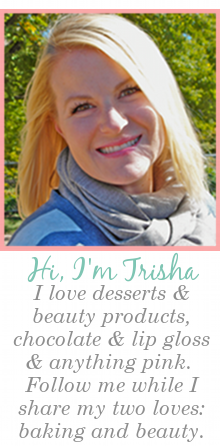Okay, if you've used all the "brightening", "radiance"-type products from
part 1 and the spots haven't budged.... it's now time for the big guns. Here are two ingredients that can really turn your skin around: retinol and hydroquinone.
Hydroquinone is more than a bleaching agent. It actually stops the pigment-producing enzyme deep in the skin and clears away the pigment on the surface.
Retinol rapidly overturns your cells while stimulating collagen, so it'll firm the skin while smoothing it out. Even though retinol is typically prescribed for people who need skin resurfacing (think acne scars, wrinkle, large pores) it also helps in lightening the surface pigmentation. Hydroquinone will go deeper into the skin and stop the pigment from forming while retinol will just work on the surface- basically it'll help fade the visible hyper-pigmentation that is on the surface of the skin.
Tips/Warnings about hydroquinone:
- Because Hydroquinone is absorbed through the blood stream and processed through the liver, if you are pregnant, nursing or have a liver condition do not use Hydroquinone.
- 2% of Hydroquinone is FDA approved for the maximum amount OTC but you can get up to a 4% in a prescription. This is only advisable if your Dermatologist really thinks this is the correct course. Most people see results with 2% so 4% just might be overkill.
- Hydroquinone can make your skin sun-sensitive and besides, the sun will ruin any results/progress you had in lightening the spots.
- Typically I advise folks who are on a Hydroquinone regimen to just use it for 3 months (or basically until the product is finished) and then move on to a natural lightener (see part 1). Once the natural brightener is finished really examine your skin to see if you need to go back to a Hydroquinone product. Use hydroquinone at night.
Tips/Warnings about Retinol
- Retinol is also absorbed through the blood stream so you cannot use it if you're pregnant, want to be pregnant or nursing (may cause birth defects).
- Because it's rapidly overturning your cells and resurfacing your skin (great news for wrinkles, sun spots and acne) it will also make your skin really photo sensitive so wear a sunscreen.
- With retinol you will only use it 3-4 times a week, maximum. It can cause irritation with too much use because it thins the skin. Like hydroquinone, it's most effective if used at night.
~ Hydroquinone and retinol are not for sun worshippers. If you love to sprawl out on the sand for 8 hours like it's your job, even if you're wearing an SPF 50, these are not the ingredients for you my friend. Just move along. Enjoy your tanned spots and don't worry about your life. Just think of all that great Vitamin D you're getting!
So, after all those warnings you're probably wondering why anyone bothers to use them? Because they actually produce results. Quite simply, they work. For brightening and aging, retinol paired with Vitamin C is a dermatologist gold-standard recommendation. And hydroquinone will give you
much faster brightening results than using a natural lightener. Here are some products that will help pigmentation:
Murad Rapid Age Spot and Pigment Lightening Serum addresses all of the pigment producing issues with hydroquinone, a hexapeptide for overall brightening and glycolic acid to lightly exfoliate and make the product more effective.
Eventone Fade Cream uses Vitamin's C and E to enhance hydroquinone.
Dr. Dennis Gross Ferulic Acid+Retinol Brightening Solution contains a mild amount of retinol so it may be used up to twice a day. This serum also houses Vitamin C, the antioxidant Ferulic Acid and salicylic acid to treat/prevent breakouts. This serum is great for pigmentation, wrinkles and acne.
~ Definitely consult a doctor if you want to use Hydroquinone and retinol together, since this is something I would not normally advise. If your pigmentation isn't that bad then perhaps just use retinol and some
Vitamin C products. If the pigmentation isn't going away then consider hydroquinone.
Do you use any retinol or hydroquinone products?









.jpg)


























